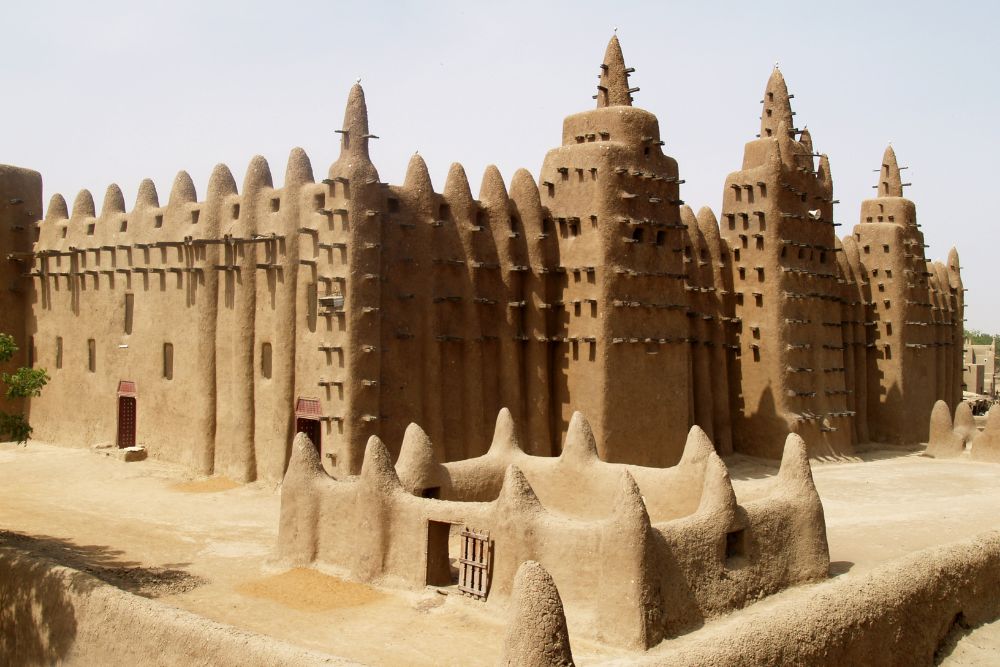The Republic of Mali may be an essentially flat country geographically, but it is inarguably a country of many highs and firsts that are as interesting as they are surprising. Here are 17 interesting Mali fun facts to check out when you visit the land of the empires.
1. Mali Is Largely Flat
Unlike the Republic of Rwanda, which is affectionately called the Land of a Thousand Hills because of its many hillocks and mountains, the Republic of Mali is mainly flat.
The flat land rises to sand-covered rolling plains in the north, with the highest point being Mount Hombori Tondo at only 1,155 meters (3,789 feet). The lowest point is the Senegal River.
2. The Mandé Make Up Half Of Mali’s Population
The Mandé ethnic group comprises the Soninke, Bambara, and Malinké. It makes up 50% of the population of Mali, with the Bambara being the largest ethnic group.
Other notable ethnic groups by size include the Tuareg, Peul (Fulani), Moor, Voltaic and Songhai.
Even as these tribes thrive, the country’s official language is French, although only about 5-10% of the Malian population have mastered it.
The nation has 13 national languages, including Bambara, Bozo, Hasanya Arabia, Songhai, Soninke, Fulfude, Tamasheq, Senofu, Dogon, Xaasongaxango, Syenara, Maninkakan and Mamara.
3. Mali Was Part Of Several Ancient West African Empires
Mali is one of the many African countries that had thriving ancient empires and civilizations, complete with their own established and deep-rooted governance systems.
The two most famous empires in Mali are the Songhai Empire in the 15th and 16th centuries, and the Mali Empire, established in the 11th century until the 16th century, and for which the country is named.
The Ghana Empire of the 7th to the 13th century, for which the Republic of Ghana is named, straddled the Sahara and the Senegal and Niger rivers headwaters in the area that is the modern-day part of Mali and southeastern Mauritania.
4. Mali Was Once French Sudan
France’s colonial rule in Mali began in 1898. The French called the country French Sudan.
When Mali became independent of French rule, it became the Sudanese Republic as part of the Mali Federation that compromised Mali (then the Sudanese Republic) and Senegal.
The dissolution of the federation gave way to the complete independence of Mali, which became known as the Republic of Mali.
5. Mali Is Home To The World’s Richest Man To Have Ever Lived
The king of the Mali Empire between 1280 and 1337, Mansa Musa, is believed to be the world’s wealthiest person to have ever lived.
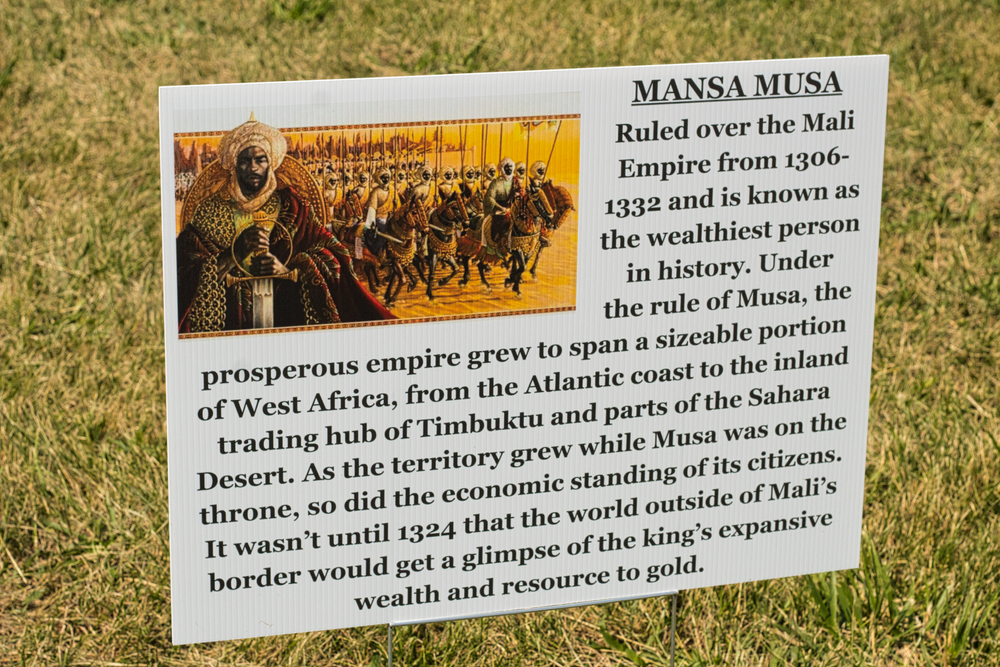
His wealth came from gold, salt, and elephant ivory, all of which were abundant in the Malian Empire.
6. Mali Shares Niger River With 8 Countries
The Niger river is a crucial water system of Western Africa, given that it is shared by nine North African and West African countries, including Mali, Niger, Nigeria, Benin, Guinea, Burkina Faso, Ivory Coast, Cameroon and Chad.
The Niger River is an important landmark in Mali. The city of Bamako is situated on the river as a river port, and it is the country’s economic capital.
Most Malian farmers also rely on the waters of the Niger River in Mali for growing vegetables, livestock, fish and rice.
7. Mali Is A Leading Gold Exporter
The Republic of Mali has two major exports—gold, which accounted for 82.9% of the country’s exports in 2020, and cotton. The country also exports fertilizers, iron, oil, rough wood and live animals.
8. The World’s Largest Mud-brick Structure
Have you added the world’s tallest mud-brick minaret in Niger to your bucket list? If not, you should.
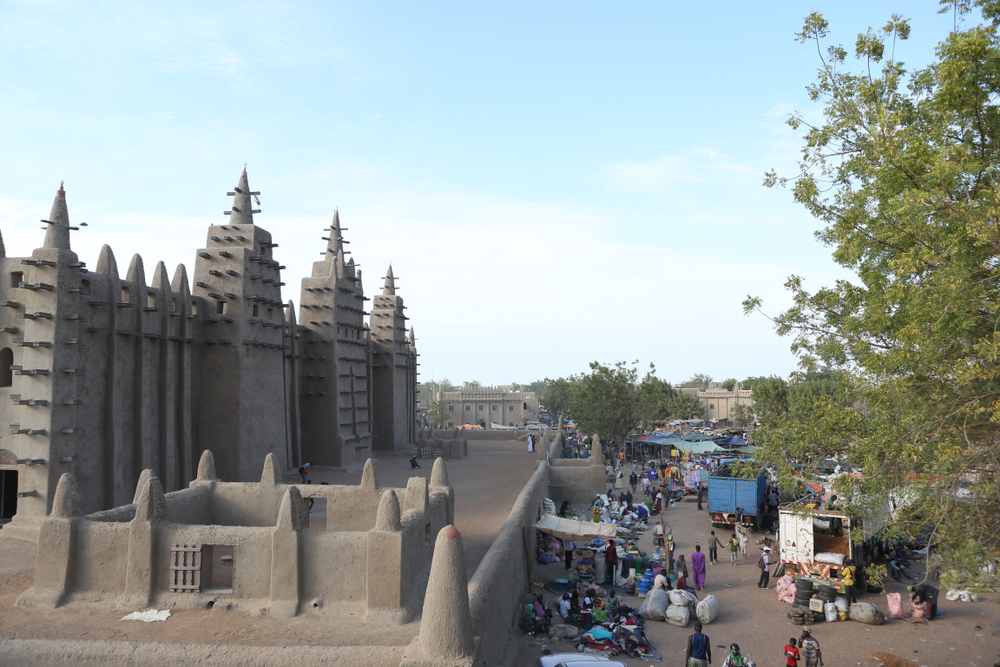
You might also want to add to the list the Great Mosque of Djenné. Built in Mali in 1907, the mosque is the largest mud-brick building in the world. It’s a sight to behold!
9. The Many Empires Born Of Trade
Many ancient empires in Mali and other countries in West and North Africa were born of and largely benefited from the Trans-Saharan trade.
The Mali Empire, founded by King Sundiata Keita, was one of the kingdoms that benefited highly as the trade routes passing through it strategically placed it to enjoy proceeds from the salt and gold trade.
10. You Can Be In Different Hemispheres In Mali
Since the Prime Meridian passes through Mali, you can straddle the two hemispheres with one foot in the Western and the other in the Eastern hemisphere at a specific point in Gao city.
The thermal Equator also passes through Mali, making the country one of the hottest in the world.
11. The 8th Largest Country In Africa
The Republic of Mali has a total surface area of 1,240,192 square kilometers (478,840.81 square miles), which makes it Africa’s eighth-largest country and the 24th-largest worldwide.
This landlocked country in West Africa is 3.5 times bigger than Germany and almost twice the size of the state of Texas in the US. It is mostly arid, given that it’s located mostly in the Sahelian and Saharan regions.
Mali is land-bordered by Algeria, Burkina Faso, Niger, Guinea, Cote D’Ivoire (Ivory Coast), Mauritania and Senegal.
12. The Country With The 4th Highest Fertility Rate
Mali joins the ranks with other African countries with the world’s highest fertility rates, including Niger at position one.
As of 2022, Mali ranks at position three on the world’s highest fertility rate index. The country ranked fourth initially and now ties with the Democratic Republic of Congo in the third position at 5.9 children per woman in her child-bearing years.
13. Bamako, One Of The Fastest Growing Cities
Mali’s capital city, Bamako, is one of the fastest-growing cities in Africa and the world.
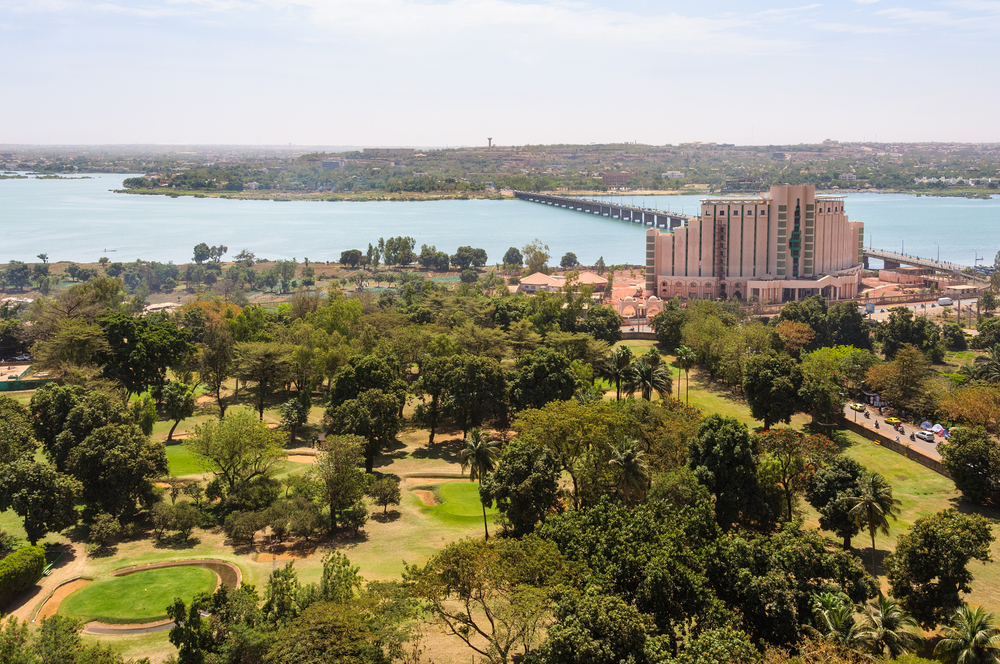
According to the World Economic Forum, Bamako joins other African cities like Nairobi, Cairo, Lagos, Luanda and Kinshasa on the fast-growing cities list.
Mali’s other largest cities include Sikasso, Koutiala, Kalabancoro, Timbuktu, Gao, Segou, Kita, Mopti and Kayes.
14. Malians Die Sooner Than Most Other Nationals
The Republic of Mali ranks at position eleven in the world for countries with the lowest life expectancy. The country’s life expectancy is 58.9 years, against a worldwide average of 72.6.
Although the World Health Organization says the expectancy has increased to 62.8 as of 2020, the country’s average age of death is still highly affected by its extremely high infant and child mortality rates.
15. Each Every Friday As A Mosque Building Day
When Mansa Musa made his pilgrimage to the holy Islamic city of Mecca, he brought along 80 camels carrying 30-50 pounds of gold each and over 70,000 people. Each Friday of the entire trip became a day to build a new mosque!
16. Mali’s Spectacular World Heritage Sites
The Republic of Mali takes pride in some of the most fascinating architectural masterpieces and historic sites, some of which have been inscribed on the UNESCO World Heritage Sites List.
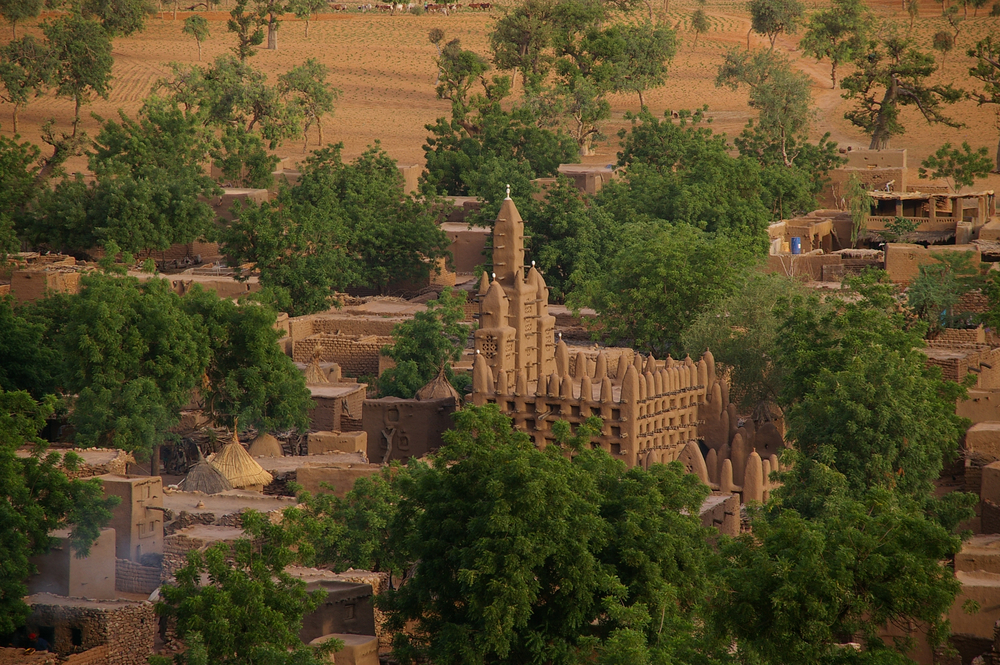
The four Malian entrants in the list include:
- City of Timbuktu
- Old Towns of Djenné
- Land of the Dogons (Cliff of Bandiagara)
- Tomb of Askia
17. 95% Of Malians Are Muslim
As a predominantly Muslim country, Islam is Mali’s most prevalent religion. About 95% of Malians are Muslim, including the Sunni as the majority and other minority groups like the Shia.
The Tuareg belong to the Berber group and are largely Muslim, living as nomads across the Sahara Desert in Mali and other North African countries like Libya, Chad, Niger, and Algeria.

